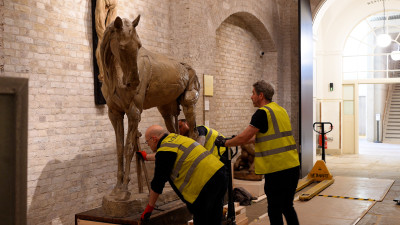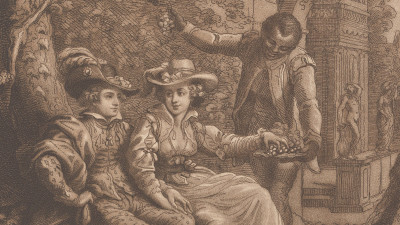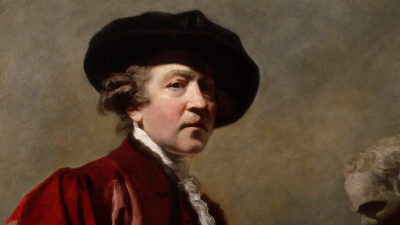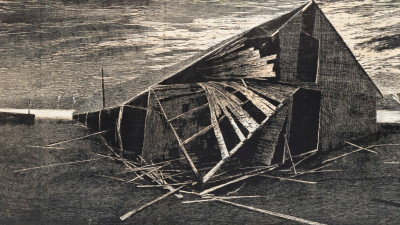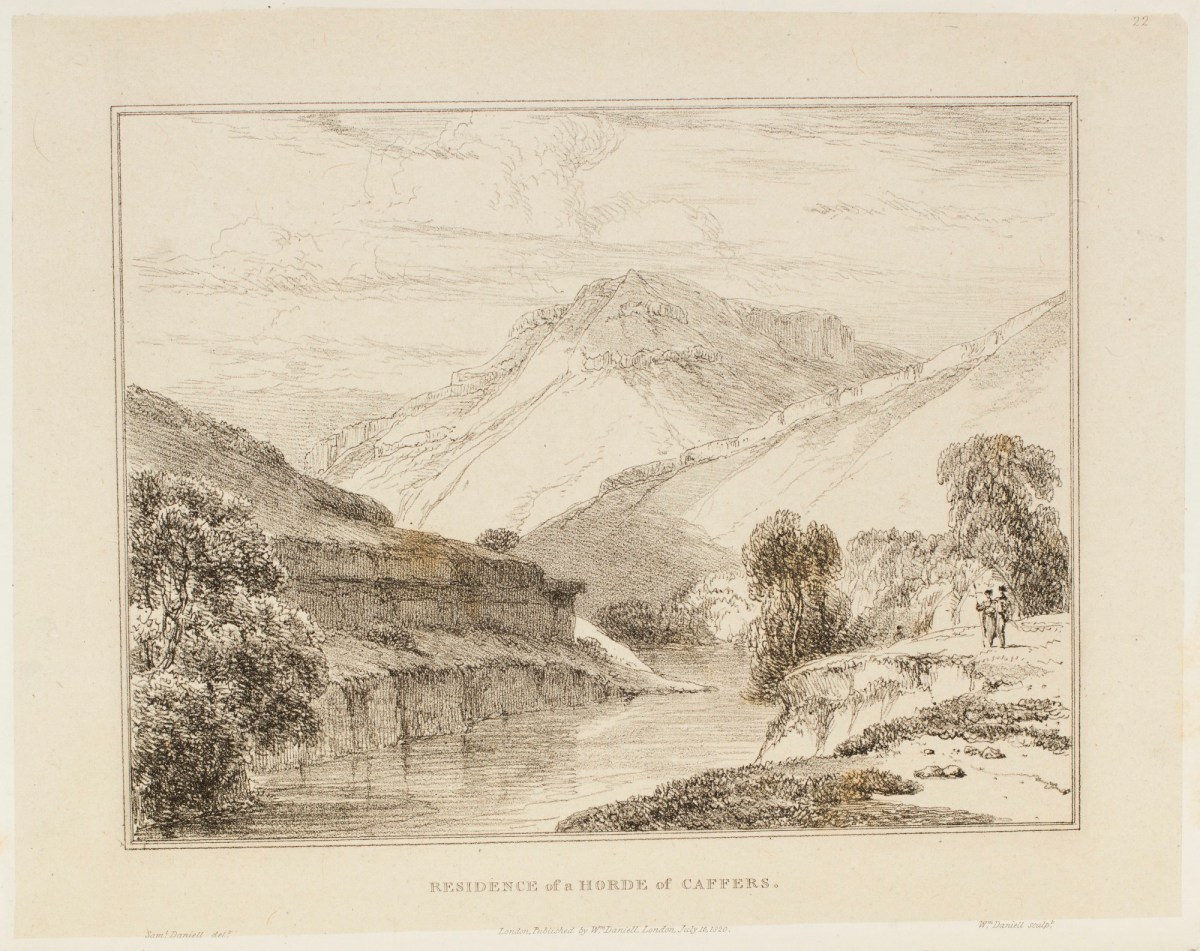
Samuel Daniell, The residence of a horde of Kaffers, 1820.
Soft-ground etching on india paper. 279 mm x 229 mm. © Photo: Royal Academy of Arts, London.
This image is not available to download. To licence this image for commercial purposes, contact our Picture Library at picturelibrary@royalacademy.org.uk
The residence of a horde of Kaffers, 1820
Samuel Daniell (1775 - 1811)
RA Collection: Art
This title or caption of this object contains language that is upsetting and offensive. We have kept the original wording – given by the artist or creator – to preserve its historical significance and, where possible, we have tried to provide additional information to contextualise the object’s content, production and meaning in the society in which it was created.
We continuously work to improve the documentation and presentation of our online Collections. If you have any comments or additional information about this – or another – object, please contact us at library@royalacademy.org.uk.
This image shows a river in a mountainous landscape, with two huts on the riverbank to the right. The illustration depicts a dwelling of a group of Xhosa people, a sub-group of the Bantu cultural and language group in southern Africa. The accompanying text to the illustration describes how Xhosa communities are often itinerant, living ‘in very compact huts, plastered with clay or cow-dung in the winter season’ and living under ‘the shade and shelter afforded by the boughs of the trees’ in summer.
This etching is an illustration for a book titled Sketches representing the Native Tribes, Animals and Scenery of Southern Africa (1820), originally drawn by Samuel Daniell and published by his brother William Daniell RA. The book was part of a British colonial tradition of ethnographic research. It demonstrates deep inherent racial prejudices and seeks to categorise indigenous groups into a Western-imposed knowledge structure. Samuel Daniell based this drawing on his encounters with indigenous people when he travelled to what is now South Africa between 1799 and 1802. This expedition was only possible due to colonisation of the land and peoples by Dutch and British forces.
The caption includes the word ‘Caffers’, a version of ‘Kaffers’, an offensive term today. When this image was published in the early 19th century, the word was a colonial term used to describe Black people of southern Africa, who had their own distinct religious customs, specifically from the Xhosa nation. The term became increasingly pejorative from the mid-20th century, used as an offensive racial slur against Black Africans living in South Africa.
Object details
279 mm x 229 mm
Sketches representing the native tribes, animals and scenery of Southern Africa / from drawings made by the late Mr. Samuel Daniell, engraved by William Daniell - London: 1820
Start exploring the RA Collection
- Explore art works, paint-smeared palettes, scribbled letters and more...
- Artists and architects have run the RA for 250 years.
Our Collection is a record of them.
